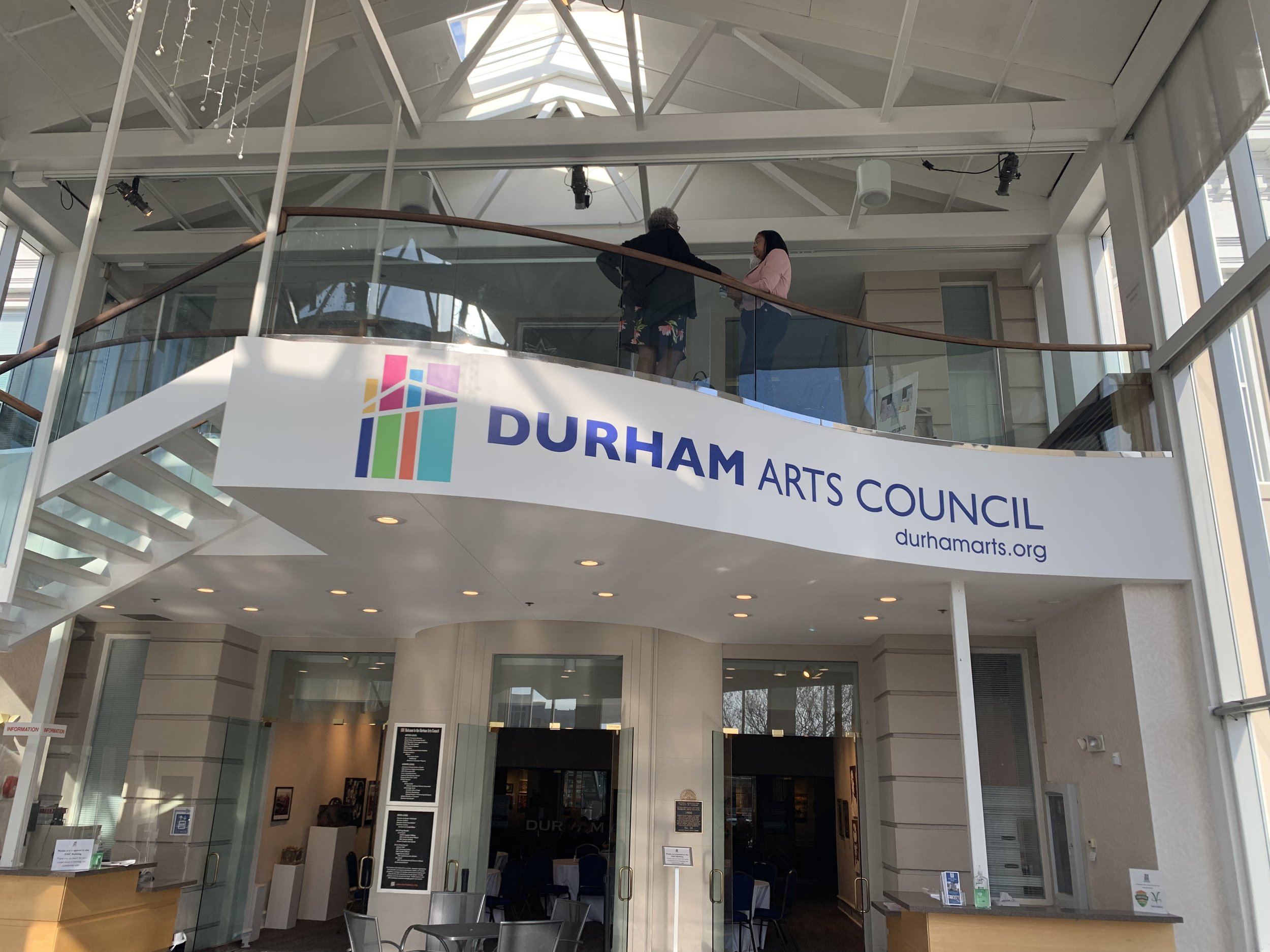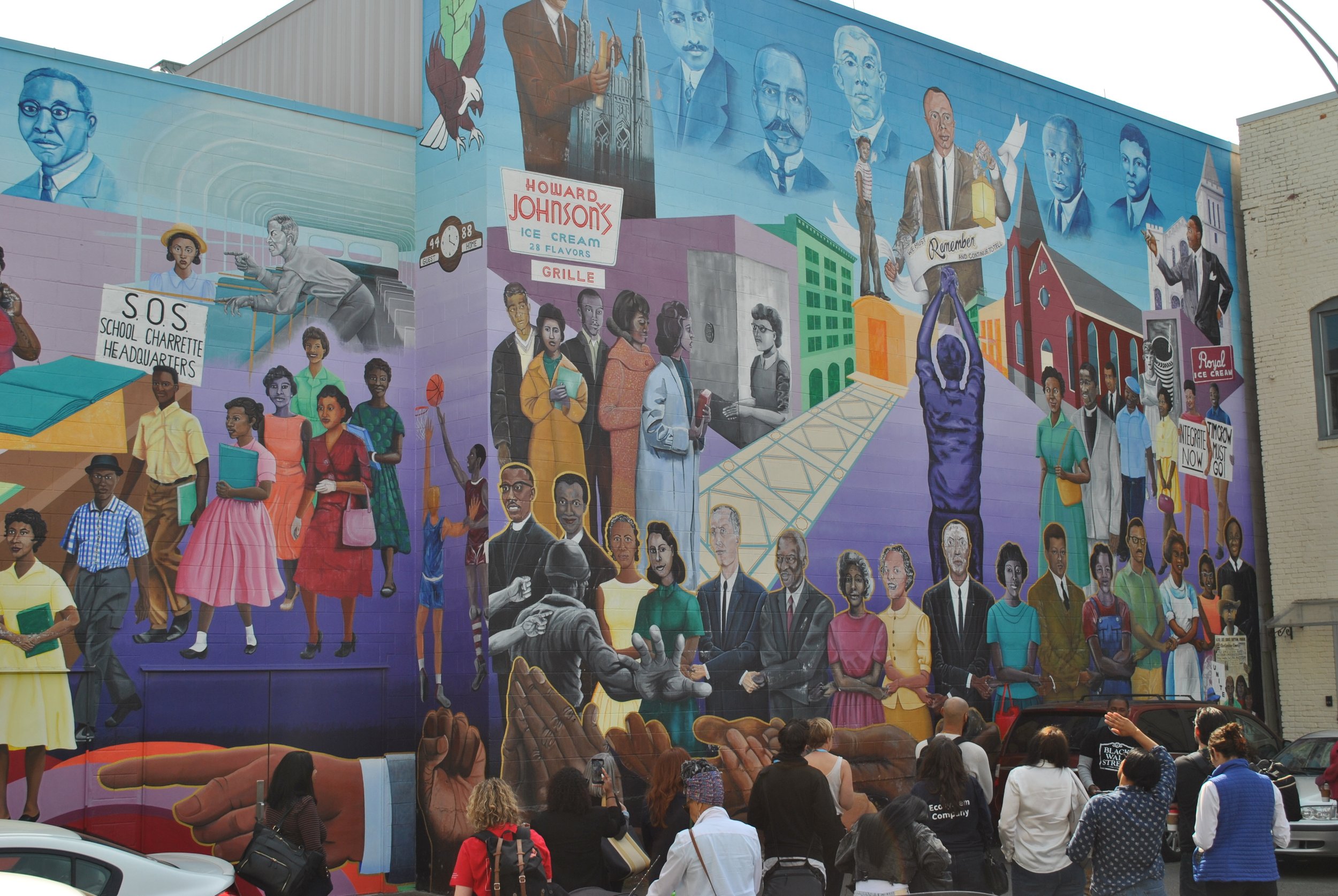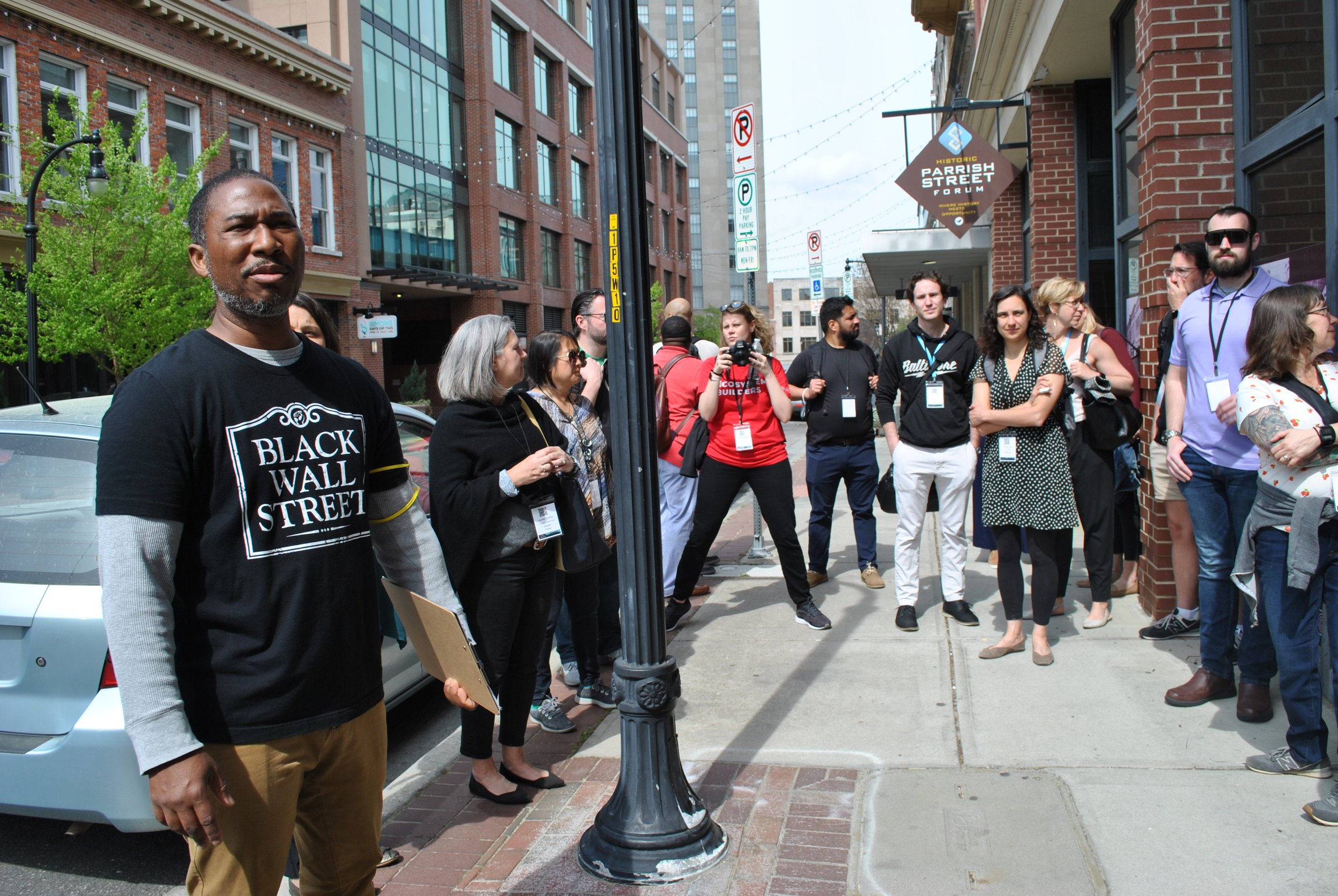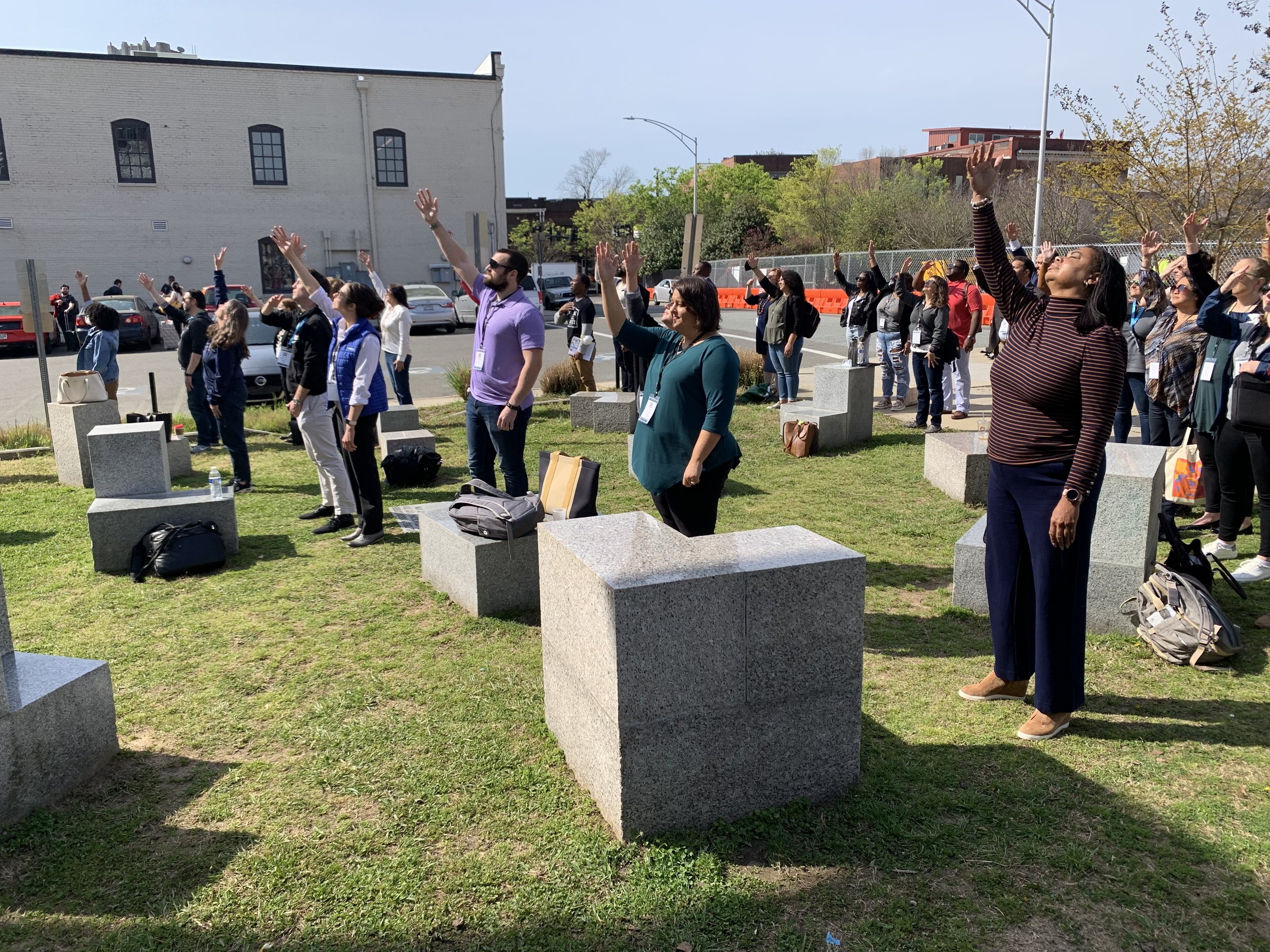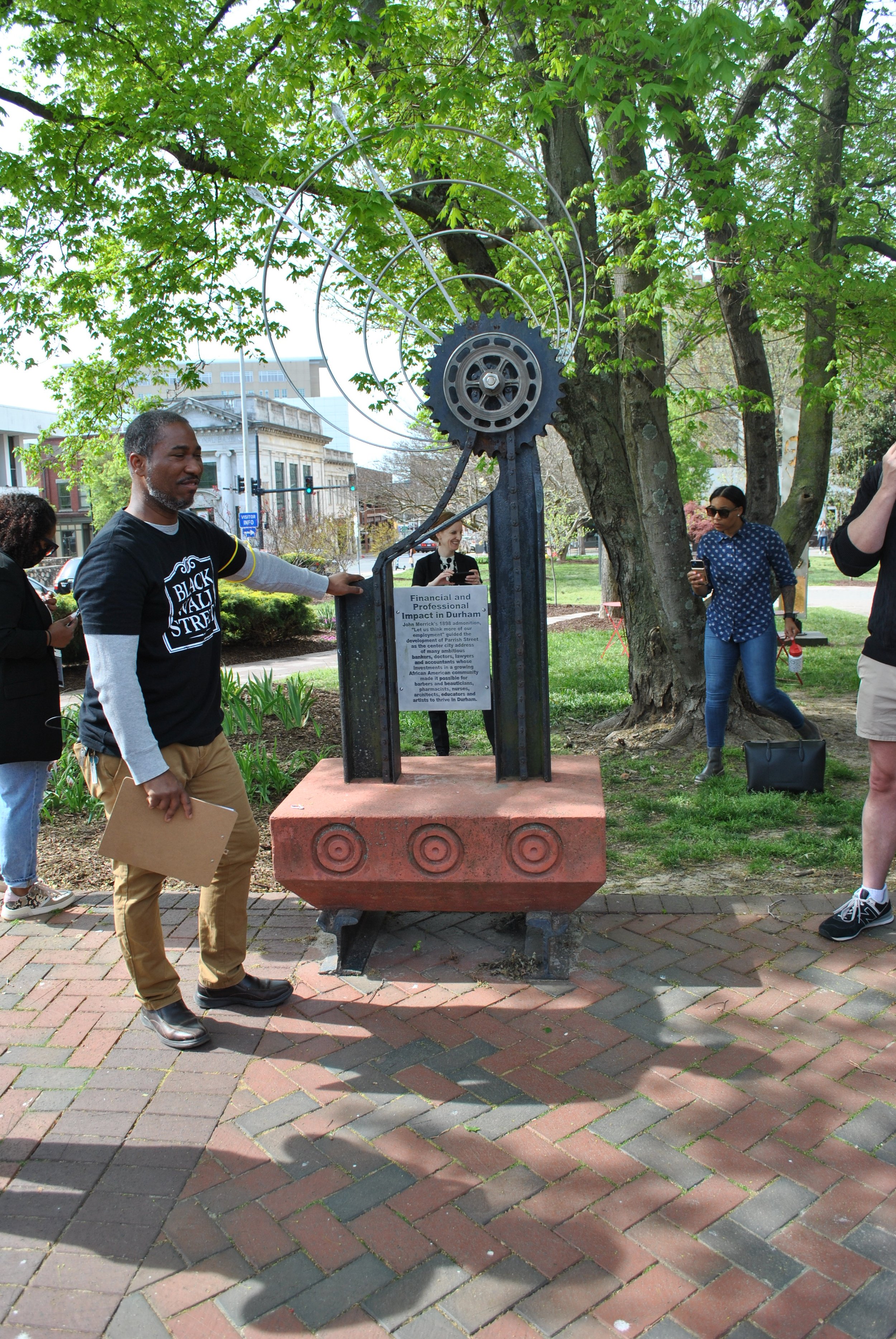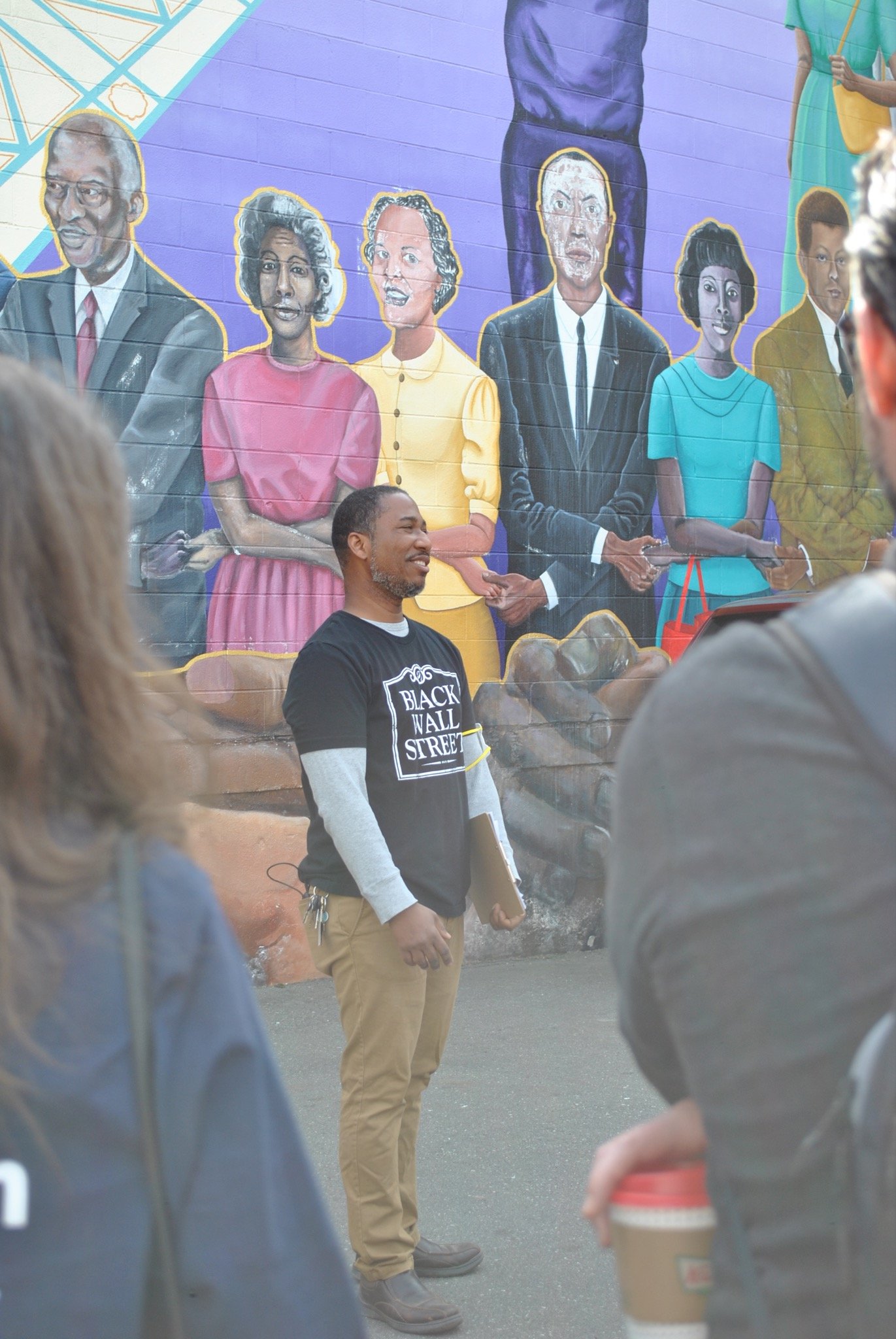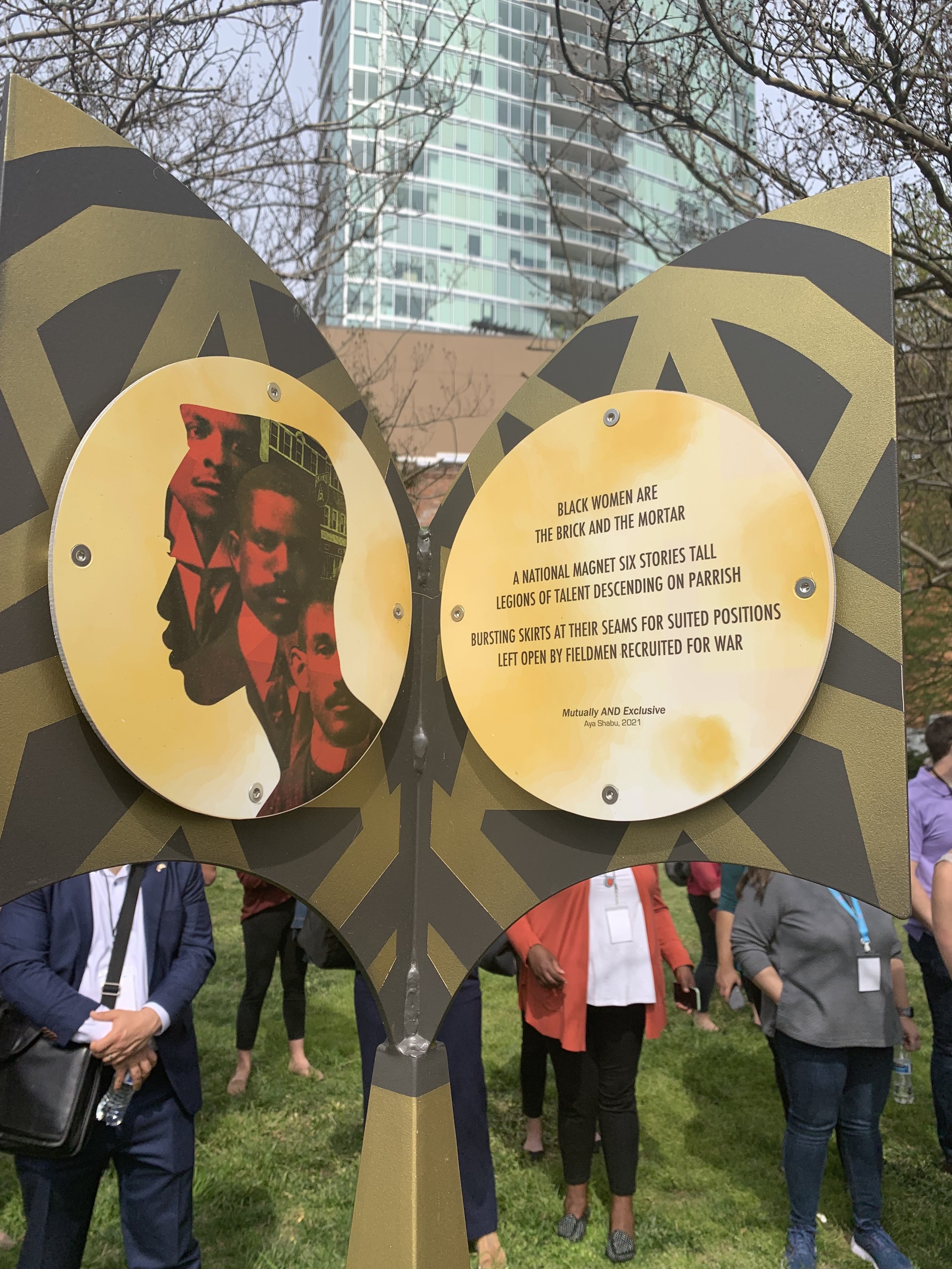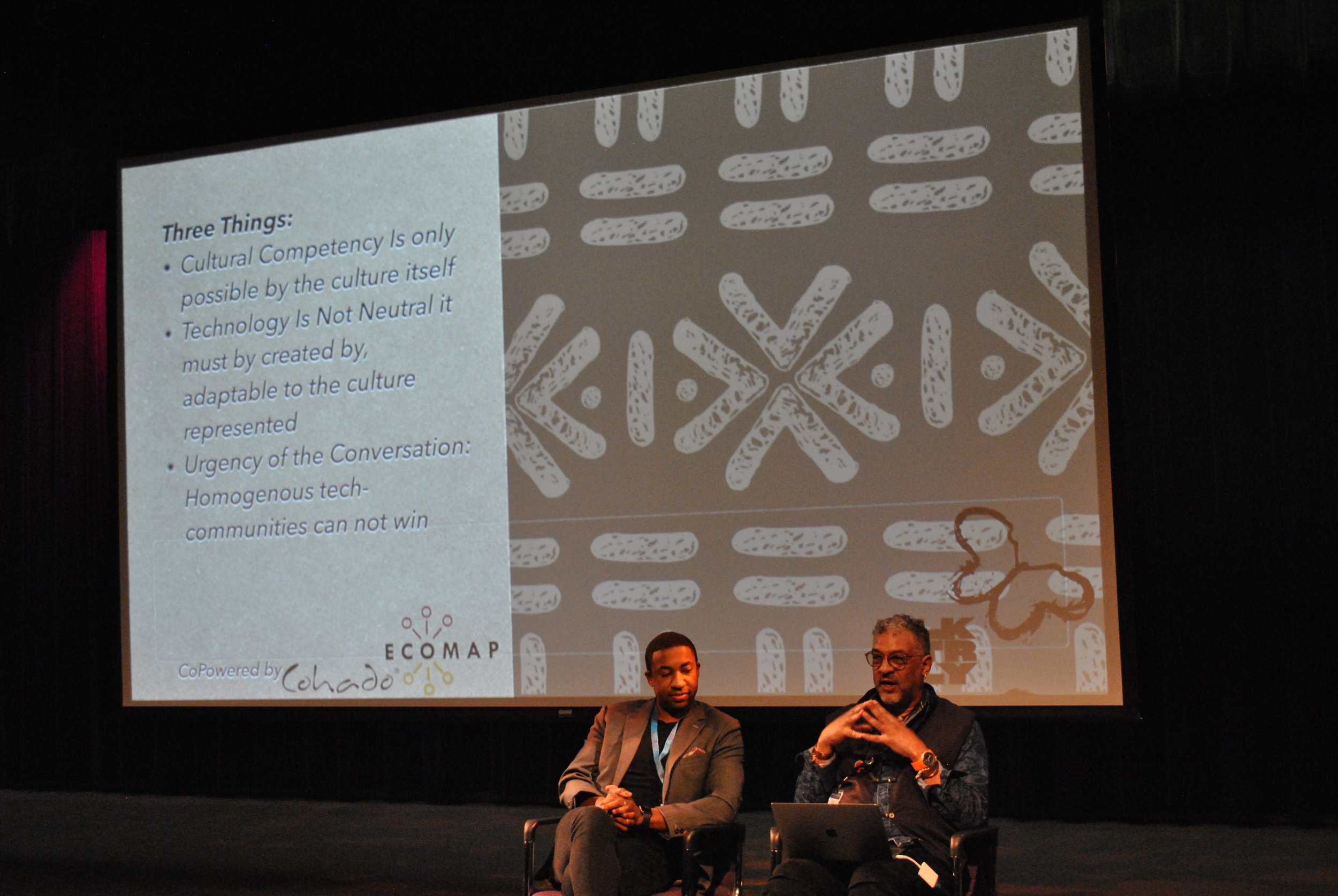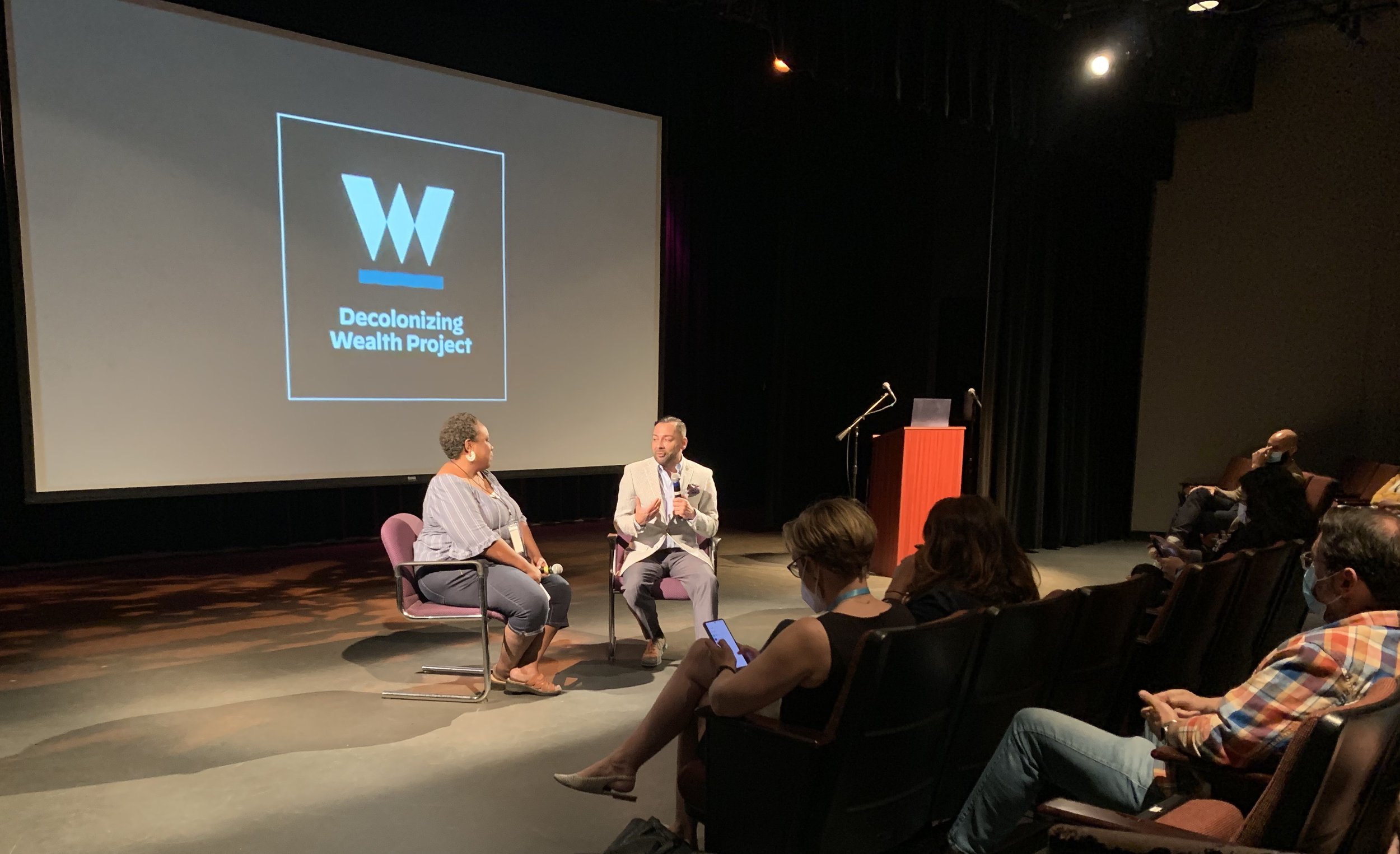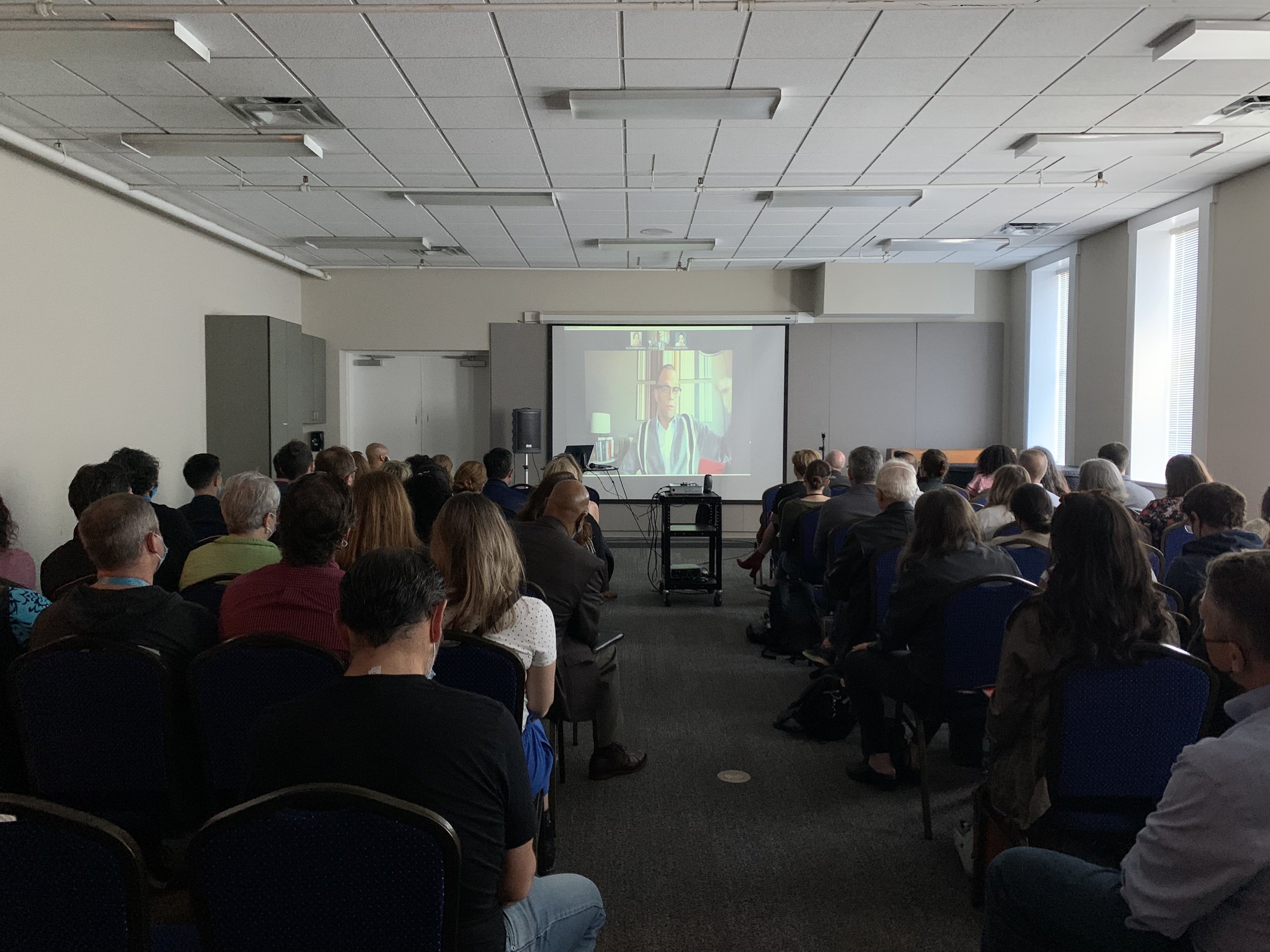The 2022 Spring Summit centered on building racial equity in a way no other SCN summit has. Ecosystem builders across 56 cities in 27 states and 2 countries were welcomed to the South to explore the Triangle ecosystem. Being in Durham - the home of one of our nation’s historic Black Wall streets - was the perfect backdrop to showcase the collaboration and equitable approach members from the Triangle are taking in their ecosystem while also showcasing the vibrant past and present of Black entrepreneurship in Durham.
Our Summit hosts gave attendees a chance to lean into three different tracks: racial equity, tech equity, and regional collaboration. Each track was championed by one of three Summit hosts:
Fay Horwitt and the Forward Cities team focused on racial equity
Anika Horn of Social Venturers and Shenandoah Community Capital Fund focused on taking a regional approach to ecosystem building
Krista Covey from First Flight Venture Center focused on diversifying tech and startups
We also had some awesome skills labs where ecosystem builders had the chance to level up and learn more about storytelling, metrics, strategic planning, and collaboration.
Black Wall Street
One of two afternoon adventure options was an immersive walking tour of Black Wall Street. Tour guide Teli Shabu shared more than history, attendees really felt the spirit and soul of Black excellence through storytelling and poetry. We learned the history of North Carolina Mutual Life Insurance Company - the oldest and largest Black-owned financial institution in the country. Founder John C. Merrick eschewed individualism to instead embrace mutual aid. He brought Black leaders and entrepreneurs together in the community to grow and support each other despite the outside forces of white capitalism. The NC Mutual building is a prominent fixture in the Durham Skyline and a bold statement for the community.
It was in that same spirit that we came together to have hard, vulnerable conversations at Provident 1898 - a coworking space housed in the historic NC Mutual building for Roses & Thorns.
“I learned so much from my table-mates at Roses and Thorns! Top game listening and vulnerability skills required! ”
Helping entrepreneurs navigate the ecosystem: E3 Durham case study
“Good ideas will go quiet when there’s no one there to provide advice and mentorship. ”
The Forward Cities team was just granted an SBA Community Navigator grant to help support equitable entrepreneurial ecosystem building in Durham. They shared their hub and spoke model that leverages the strengths of trusted local organizations and ecosystem builders to help entrepreneurs get the resources they need. In this session, we met the architect, the storyteller, the measurer, the communicator (outreach), the navigator, and the counselor. Each role plays a part in helping ensure there is “no wrong door” to accessing the full breadth of the resources in the ecosystem. The E3 team was intentional about building a system where different “navigators” took part in creating relationships based on need to move people through the system.
Building Techquity in Baltimore through the Black Butterfly Network
“Technology has to feel like you belong.”
Paulo Gregory started his case study session on Baltimore’s Black Butterfly Network with a powerful statement:
“Cultural competency is only possible by the culture itself.”
The Black Butterfly Network has been working with EcoMap to map the ecosystem and build out the Blk Btrfly Exchange, a comprehensive platform for information and support for Baltimore's Black-owned businesses.
But in building that space, there were nuances around the culture they were serving that needed to be incorporated. Paulo stressed how important it was for the platform to “look like a space for us.” Thanks to the flexibility of the EcoMap technology, they were able to offer technology that reflected the community versus technology that felt forced on them.
Read more about Black Butterfly Network here.
Philanthropy behind the curtain
Our keynote speaker was Native American author and activist Edgar Villanueva. Edgar pulled back the curtain on the underpinnings of philanthropy from his experience. His book, “Decolonizing Wealth,” uncovers the motivations and racist narratives you don’t see from the public view.
“Colonization as a force is about taking and extracting resources and hoarding them. ”
It was refreshing and deeply moving to hear his perspective as a Native American navigating a world that is “doing good work” but only for those who are in their inner circle who could help keep the status quo. Not for those who are “too small” or “too risky.”
Edgar has been challenging foundations to look at how they got their money and invest in the communities they benefited from. He notes that the wealth that exists comes from taking land that belonged to Native people. [#LandBack] If you really want to address and change systemic, historical issues you have to redistribute wealth to groups who have been historically excluded.
“Reparations’ is the most beautiful word to me because it simply means repair. […] It’s not about taking away.”
From that lens, he introduced the concept of “money as medicine.” Wealth building is what communities of color have largely been excluded from - because wealth was created on their backs. It’s time for that wealth to be used towards healing.
First Flight Venture Center
Our other afternoon adventure tour option was to Research Triangle Park, where attendees got a close-up of innovation in action through the work of First Flight Venture Center.
Fun fact: Astroturf was created in Research Triangle Park in the 1960s.
Lifting everyone up
“Enabling more people to do better, does not mean others do worse.”
Our closing plenary was a powerful talk by Kauffman Foundation’s Vice President of Entrepreneurship, Philip Gaskin.
Philip touched on the effects of the pandemic and the urgency of working together to continue filling the gaps that were there before and are getting bigger now. He stressed the importance of systems change and the resources Kauffman has for ecosystem builders to do that.
“In times of crisis, communities and worlds come together. In between the last crisis and the next, things fall back apart and the things that you didn’t address get worse. The gaps get bigger. ”
Start Us Up Now is one way for ecosystem builders to help drive policy change at the state and local level.
SCN Challenges
We were so excited to announce a number of new SCN Challenges this year alongside our partners. We will be hosting info sessions for all but here’s a preview of our three new challenges:
Map What Matters
EcoMap’s Map What Matters aimed at getting ecosystem builders to think about what it means to map their ecosystem to support their entrepreneurs. To enter this challenge, an organization will use a (very) abridged version of EcoMap’s data paradigm to map out 50 resources that they've identified as being critically important to their own ecosystem.
Fluency Score
Fluent’s Fluency Score Challenge offers access to venture-level metrics to map and track companies as they navigate your ecosystem. Challenge participants will track the trajectory of up to 100 companies in your ecosystem quarterly for a year, access custom recommendations for the support and mentorship of each venture, learn how to best leverage this data to build a cohort of metrics-minded peer organizations, and contribute to an anonymized SCN Benchmarking Report for the Fall Summit.
Startup Investing Ecosystem Challenge
Assure’s Startup Investing Ecosystem Challenge is a 6-month cohort learning series that will help Ecosystem Builders discover new paths to startup funding and increased access to the private investment asset class for their ecosystems. Participants acquire tools to foster the growth of investment syndicates and strengthen their venture capital networks.
Key Takeaways
There was so much knowledge and energy shared at the summit but what it all boils down to is that relationships and trust-building are important. With not for.
How you tell your story and to who matters. You have to speak the language of your audience. And you have to benchmark, map, and measure the work. Data stories matter too - especially to the people who pass laws and offer capital.
Finally, show up. Advocate for the entrepreneurs in your ecosystem to your local and state representatives. Show up and be on record.
“I was totally blown away by everyone’s enthusiasm for not only getting back together in person, but really having the commitment to learn from each other, support each other, and take what we learned back home with us to continue to build on them. This summit really solidified for me why we do what we do. This is hard work. But if we do this hard work together, not only can we do it, we can do it well. I’m proud to be a new board member for Startup Champions Network.”
Where to next?
We’re going to Fort Worth, Texas!


